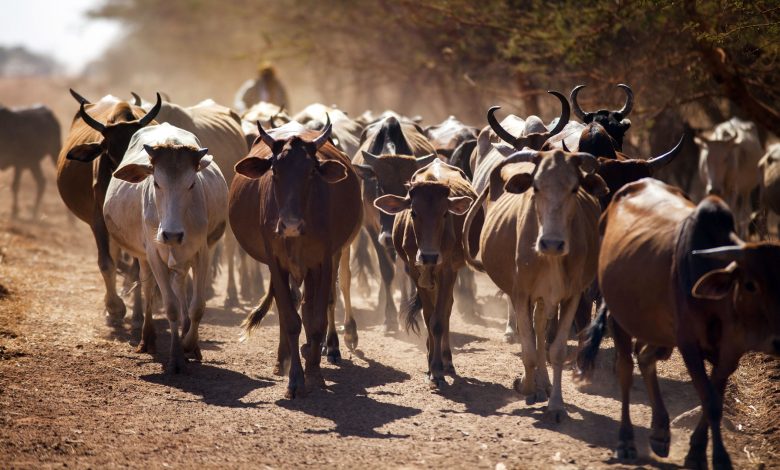Livestock and Meat Exports Cross-cut with Government Decisions

Report – Rehab Abdullah
Although Sudan possesses animal wealth exceeding 110 million heads of livestock, it has been facing obstacles in livestock exports for many years, for administrative, technical and logistical reasons, in addition to recent obstacles related to the militia war against the Sudanese army since April 15, 2023.
The Sudanese economy depends mainly on the export sector, as one of the country’s scarce foreign exchange sources, which caused a sharp decline in the local currency.
In light of the complex political circumstances that the country is experiencing, livestock exporters are trying to fill the foreign exchange revenue gap by exporting the largest number of livestock abroad.
However, the attempts of livestock exporters are in vain, amid obstacles and problems in the way of livestock exports abroad.
*10% fee charged*
Livestock exporters in Sudan were surprised (Tuesday) when the government imposed customs duties of 10% on exports of sheep, goats, and camels, which is the first time it has imposed duties on livestock exports since years, according to the head of the Livestock Exporters Chamber in Sudan, Saleh Salah, who spoke to Al-Sharq saying “The decision will have disastrous effects on the sector if the matter is not remedied. Saleh continued that the chamber has formed a committee to communicate with the Ministry of Finance and Trade in particular and is awaiting a direct meeting with the Minister of Finance, adding that the sector has been suffering since the outbreak of the war due to the lack of security in the production areas and the high cost of transportation, which threatens the continuation of exports if the government adheres to its decisions.
*Destruction of the sector*
For his part, the former head of the Meat Exporters Division at the Chamber of Commerce, Dr. Khaled Al-Maqbool, denounced the imposition of customs duties of 10% on exports of sheep, goats, and camels, describing it as “unsuccessful,” demanding the necessity of reviewing the step and canceling the customs increases immediately.
He said in a statement to (Al-Ahdath) that the step has real and very significant damage because it raises cost duties and thus reduces the competitiveness of exports, adding that customs duties are considered a burden that reduces the capital of the exporter, and therefore, in light of the lack of available financing, the exporter will face the burden of providing additional resources to provide the same volume of exports, and it is certain that it leads to a decrease in the volume of exports by 10% or more, and thus reduces the proportion of exports and revenues from hard currency.
He emphasized the impact of this on the balance of payments, pointing out that the product will be harmed by the market, in that there will be a decrease in exporters as a result of the decrease in capital due to the increase in the cost of the payment of 10% additional fees, pointing to a decrease in withdrawals by 20-30% as a result of the increase in cost and lack of competitiveness, and thus the flows of the commodity will decrease for the market, indicating:
This is a compound damage that includes the product, the balance of payments, the economy, and export revenues in hard currency. It also causes a scarcity of foreign exchange in the market and thus its price will rise. Al-Maqbool asked about the goal and significance of the step, stressing that its devastating effects are great and called for supporting exports instead of increasing duties, especially since all countries of the world support exports at a rate of 10/20% of the exchange rate difference so that it can compete in foreign markets and export larger quantities and as well as providing facilities to exporters.
Al-Maqbool confirmed that despite the negative repercussions of the war, livestock exporters were able to supply the markets.
*Support to the public treasury*
The Undersecretary of the Ministry of Livestock, Dr. Hassan Al-Toum, acknowledged in his statement to Al-Ahdath that the large number of levies and fees imposed on animals make them lose their external competition.
Pointing out the sector’s contribution to supporting the public treasury despite the war conditions, that the volume of exports is very large for the year 2023 compared to 2022. The revenue from calves exported just from January to August reached $35,853,600, while the revenue from camel exports amounted to $82,027,000, and the total export revenue amounted to approximately $500 million compared to the export of 2022, so the total revenue from live exports amounted to 2,300.00 million.



